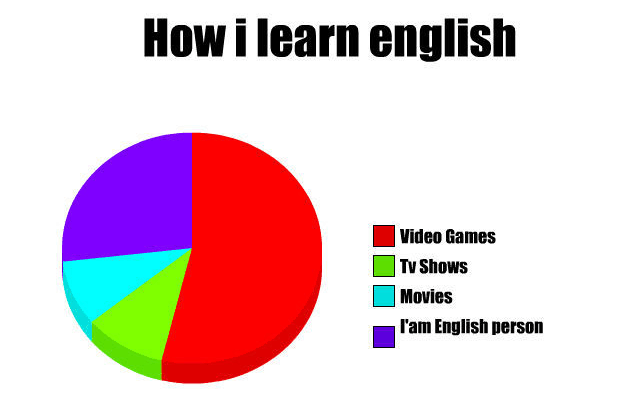Scientists all over the world usually argue about when it is better to learn a language. And we argue with them that there is no better time than NOW. No matter what county you live in, what age you are and what specialization you have, “I have no time” and “I was badly taught at school” are no longer the excuses. Actually, everybody has no time, but for many it’s not a problem. Surprized? Let’s then find out how to cope with this.
Step 1. Motivation and priorities
No motivation – no learning. First, decide why you need to learn or improve your English, how you can use it and why actually English you want to improve. Then, make a list of things that are of minor priority to English. This is how you can immediately see which daily activities you may switch to language studies.
Step 2. Time-eaters will be analyzed
“Who’s the time-eater? I don’t have such. Every minute of my schedule is productive!”
Yes, no doubt, for sure. Just close that window with Facebook, please. Of course, social activity should be an integral part of your free time but don’t get swallowed by those cats and memes after all. Turn the unproductive procrastination into the one which brings some fruit without any special effort. Like blogs with jokes? Filter your content and make a choice towards English humor (OK, at least humor in English), pick easy for comprehension but an informative stuff of good quality to fill your news feed. Like computer games? Play them in English!

You may also entertain yourself between homework and another kind of your daily rut by watching useful and specialized video channels. You may either spend half an hour carefully watching them to catch the details or play them in the background while doing something else. Your memory works well in both cases.
The same activity may be performed while having a lunch time or traveling by bus. Moreover, once you have a free minute, you have a chance to improve your vocabulary even without audio and video support. Here’s a word game: write out some unknown or sophisticated words every day from different sources on cards and take them with you anywhere you go and then try to use them during the day. Besides, try to use a single-language dictionary to get the explanation of them.
Step 3. Talk to everybody including yourself
You obviously should speak to many native speakers whether they are your friends or strangers. What for if you read the dictionary before going to sleep? Well, that is the real language you won’t find in the book or even hear in a movie. Here everything matters, the sounding of the regional accent, intonation, vocabulary and use of grammar. If you really want to master English, you will even find sources where you can meet people who want to share their knowledge and are ready to meet you online on such services as Tinder, HelloTalk, Highlight and Patook.
Step 4. Repetition and revision and repetition and revision
If you are interested in English so much that you’ve even googled how to better learn it, you probably have some background in your studies. If yes, take your recent notes (or the latest ones) and look through them. Then make new notes (words, grammar rules, phrases, ideas, etc.) and keep on revising some of them from time to time. While watching videos or movies, also don’t forget not only to take notes but also to repeat the pronunciation peculiarities after the native speakers.

Step 5. Pluses of self-education
The modern generation is so lucky to have an overchoice of various educational platforms available from every corner of the world. In brief, you might have heard about them, but if you still haven’t used them at least once, go get an account on, for example, FutureLearn, edX, or Curious to try learning different subjects in English beyond the classroom. Try a challenge “one video a day”; websites like TED or podcasts on iTunes or Stitcher may help you with that.
And yet, be a lifelong learner not limited by English only. Good luck!



Thank you for share this blog,this blog is informational as well as very helpful to improve English . We hope you will soon post your next blog.